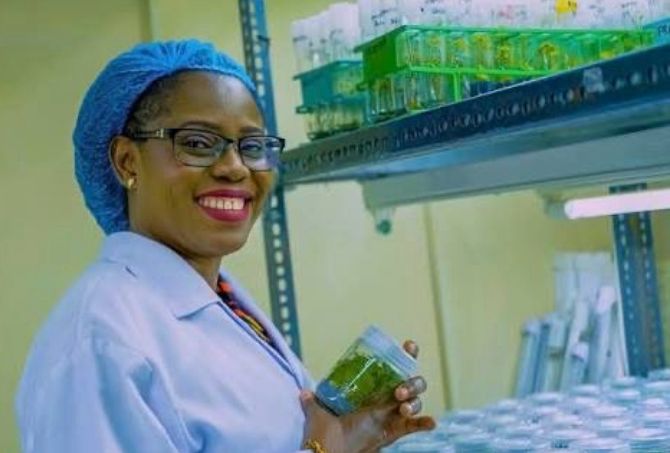The International Institute of Tropical Agriculture (IITA), a member of the CGIAR global research partnership, has honoured one of its scientists, Mercy Diebiru-Ojo, after she was named a 2025 Africa Food Prize laureate for her work on cassava and yam seed systems.
Mrs Diebiru-Ojo was recognised for developing and expanding the Semi-Autotrophic Hydroponics (SAH) technology, commonly called cassava-in-a-box. The method enables the mass production of high-quality, disease-free planting materials, which scientists say could help address food security challenges in Africa.
The award was announced earlier this month at the Africa Food Systems Forum in Dakar, Senegal, where Mrs Diebiru-Ojo was named co-laureate alongside Mary Abukutsa-Onyango of Kenya, known for her work on indigenous African vegetables.

At a media conference in Abuja, IITA Director General, Simeon Ehui, said the development showed how agricultural research can be applied to provide practical solutions for farmers.
In an interview with PREMIUM TIMES, Mrs Diebiru-Ojo described the award as an encouragement to continue her work.
“This award is not the end, it is a beginning, a call to action and a reminder that much remains to be done if we are to achieve a food-secure Africa,” she said.
She explained that SAH technology was designed to be affordable for smallholder farmers.
“For the average Nigerian, cassava in a box costs about ₦800, providing roughly 25 plants. While there’s a cost, farmers see the value in the quality of what they buy and keep returning because the planting materials are reliable and high-yielding,” she noted.
In 2022, PREMIUM TIMES reported on Mrs Diebiru-Ojo’s role in cassava seed system development, highlighting the potential impact of her research on food security in Nigeria and beyond. Her recognition in 2025 is seen as a continuation of that work.
Tackling longstanding challenges
Cassava and yam are staple crops in Africa, but production has been limited by slow multiplication rates, disease-prone planting materials, and poor access to improved varieties. Traditional propagation can take up to a year, with recycled stems often carrying pests and diseases that reduce yields.
According to Mrs Diebiru-Ojo, the SAH process multiplies clean, disease-free plants in less time, giving farmers quicker access to improved varieties.
She said the technology is now being applied in 15 countries including: Nigeria, Togo, Tanzania, Rwanda, Uganda, Zambia, Malawi, Angola, Liberia, Sierra Leone, Mali, Democratic Republic of Congo among others.
“In Nigeria alone, we have five facilities. Vice President Kashim Shettima is also interested and currently, we are setting up two facilities for him—one in Abuja and another in Borno, which he wants to use to empower farmers,” she said.
Mrs Diebiru-Ojo, a Nigerian plant breeder, earned her PhD from the West Africa Centre for Crop Improvement (WACCI), University of Ghana. She was a Norman Borlaug LEAP Fellow and a visiting scientist at Cornell University, where her research focused on cassava flowering and genetics.
At IITA, she has worked on improving access to clean planting materials through initiatives such as GoSeed and the Building an Economically Sustainable Integrated Cassava Seed System (BASICS). She has also contributed to yam and potato seed system improvements and led training programmes for women farmers.
READ ALSO: Food Security: Bauchi farmers harvest cassava (PHOTOS)
The Executive Director of the National Root Crops Research Institute (NRCRI), Chiedozie Egesi, said partnerships would be critical to expanding the reach of such innovations.
“We have over 5,000 cassava seed entrepreneurs across Nigeria, and our next step is to build their capacity to produce high-quality cassava and yam planting materials,” he said.
With the recognition of two women innovators in 2025, the Africa Food Prize committee signalled a shift in the landscape of agricultural research on the continent. “It is a powerful message about the future we are building,” Mr Ehui said.











